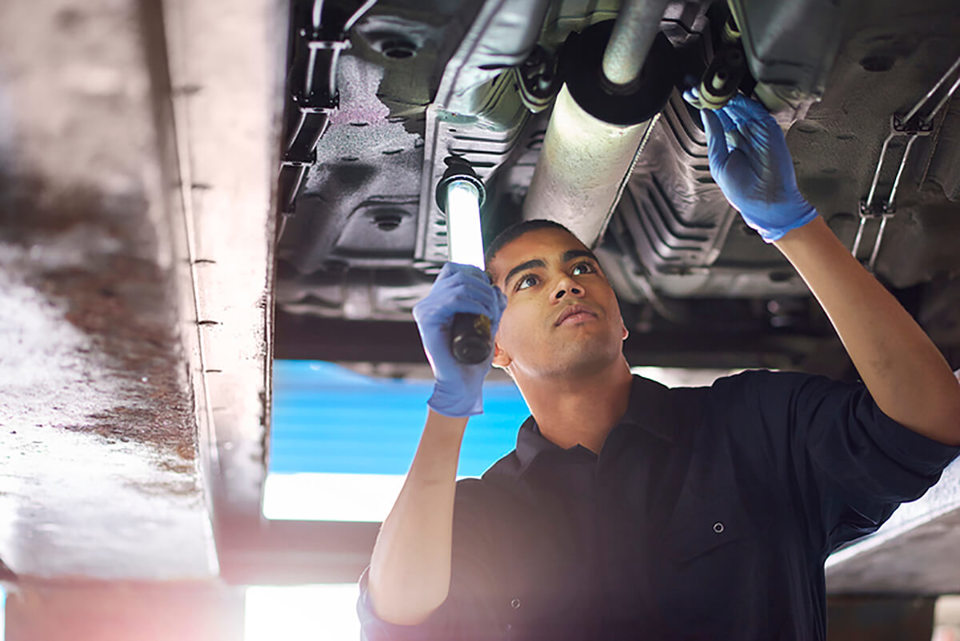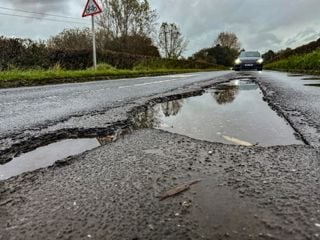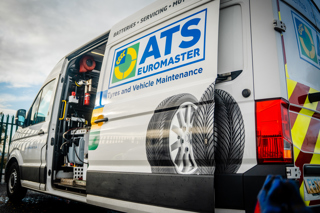New research has found that the life of vehicle parts can vary greatly depending on the model, with some high ‘burn’ components not even included in SMR (service, maintenance and repair) calculations.
Derwent Management Services has compiled a database of component replacement records (the so-called burn rate) gathered from the leasing industry across more than 300,000 company cars and vans and some 4.3 million ‘incidents’ of part replacement. They range from brake linings (brake shoe or pad) to engine replacement.
It suggests that typical SMR running cost figures are based on too narrow a range of parts, and real-world operation has shown certain components – even on
vehicles produced by the same manufacturer – can have a different life expectancy.
DMS business development manager Andy Smith, who developed the system, said: “When manufacturers launch a vehicle they provide SMR (service maintenance and repair) data on about 16 key items.
“However, that is a long way short of the number of vehicle components that may need replacing during the fleet life cycle of a vehicle.
“The SMR BurnRate system details all the key parts that may need replacing with contract hire and leasing companies electronically supplying vehicle component invoicing data.
“DMS updates SMR BurnRate quarterly to give fleets, contract hire and leasing companies and motor manufacturers the most accurate operating view of component, and therefore vehicle, reliability.”
Highlighting the replacement rate for a wider set of parts could result in the SMR bills for some vehicles rising, while others might become cheaper, with the impact reflected in a more competitive leasing rate.
Smith believes that the SMR BurnRate system will ultimately influencing fleets’ choice of model through wholelife costs.
“Component expenditure can be factored in to the equation,” he added.
“If you can reduce the number of component replacements then you will go a long way to controlling the cost.”
For example, the data has shown that the front brake linings on a Volkswagen Golf are likely to require replacement on average 45.7% less frequently than on a Vauxhall Astra and 35.8% less often than on a Mercedes-Benz C-Class at 60,000 miles, which can be critical information when making total cost of ownership decisions.
Similarly, front wiper blade replacement rates on a Nissan Qashqai are more than three times lower than those on a Ford Fiesta.
The data is taken across a list of 63 key components ranging from air conditioning (service and re-gas) to wiper blades.
The technology also enables users to drill down into the data to analyse average component costs and obtain a comprehensive service and maintenance history of individual models across their fleet life.
Based on the top 10 best-selling new car figures of 2012 as compiled by the Society of Motor Manufacturers and Traders (SMMT), SMR BurnRate reveals that the BMW 3 Series has the lowest front brake lining (shoe or pad) replacement rate of 42.8% at 60,000 miles per 100 company cars.
That compares with, for example, the Vauxhall Corsa (167%).
Fleet operators can also drill down into the data to compare models from the same manufacturer to compare component ‘burn rate’.
Analysing the BMW 3 Series with the BMW 1 Series reveals that in relation to ‘burn rate’ of front brake linings, front brake discs, rear brake linings and rear brake discs, the larger car is best in all categories.
Smith said some contract hire and leasing companies are already using the new system and providing detailed vehicle incident data.
He expected more to start in the next few months with the information used to assist choice list options.
“We are also in discussion with many motor manufacturers who can see the benefits to them of using the data,” he added.
“And we expect SMR BurnRate to be essential use for fleet operators as they look to cut vehicle operating costs.
“The company car and van maintenance records linked to component replacement on SMR BurnRate build from the day a vehicle joins a leasing company fleet to the day it is defleeted to provide the most complete real-world record of vehicle reliability that can generate savings in fleet operating costs.”
Golf tops smr burnrate ranking
SMR BurnRate highlights, for example, that among the top 10 best-selling cars in the UK last year, the Volkswagen Golf has the lowest component replacement factor based on a basket of most frequently required items at 60,000 miles. The Golf is followed by the Vauxhall Astra and the Nissan Qashqai.
Top 10 best-selling cars in 2012
1. Ford Fiesta
2. Vauxhall Corsa
3. Ford Focus
4. Vauxhall Astra
5. Volkswagen Golf
6. Nissan Qashqai
7. BMW 3 Series
8. Volkswagen Polo
9. Mercedes-Benz C-Class
10. BMW 1 Series
(Source: Society of Motor
Manufacturers and Traders)
Top 10 best-selling cars based on SMR Burn Rate
1. Volkswagen Golf
2. Vauxhall Astra
3. Nissan Qashqai
4. BMW 3 Series
5. BMW 1 Series
6. Volkswagen Polo
7. Vauxhall Corsa
8. Ford Focus
9. Mercedes-Benz C-Class
10. Ford Fiesta
(Source: Derwent Management Services)
Component ‘burn rates’ for popular fleet cars
The sample list of cars shows the variation in parts replacement rates. On brake pads, for example, the Qashqai will cost double the Prius – approx £24 per car. And the 3 Series is much cheaper than the Ford Fiesta on the selected components.
Bulbs
(sets per 80,000 miles)
Ford Fiesta 3.3
Vauxhall Astra 1.1
Volkswagen Passat 0.4
BMW 3 series 0.2
Nissan Qashqai 1.5
Audi A6 1.2
Kia Sportage 0.6
Land Rover Discovery 2.9
Toyota Prius 0.6
Front Wiper blades
(sets per 80,000 miles)
Ford Fiesta 1.9
Vauxhall Astra 0.8
Volkswagen Passat 1.1
BMW 3 series 0.7
Nissan Qashqai 0.7
Audi A6 1.1
Kia Sportage 0.8
Land Rover Discovery 1.6
Toyota Prius 1
Front brake pads
(sets per 80,000 miles)
Ford Fiesta 1.5
Vauxhall Astra 1.4
Volkswagen Passat 0.7
BMW 3 series 0.8
Nissan Qashqai 2
Audi A6 0.9
Kia Sportage 1.9
Land Rover Discovery 2.2
Toyota Prius 1
12V Battery
(per 80,000 miles)
Ford Fiesta 0.1
Vauxhall Astra 2.1
Volkswagen Passat 0.2
BMW 3 series 0.2
Nissan Qashqai 0.9
Audi A60.1
Kia Sportage n/a
Land Rover Discovery n/a
Toyota Prius 1.2
Source: Derwent Management Services




















Login to comment
Comments
No comments have been made yet.